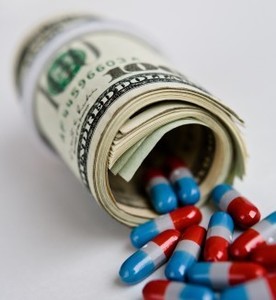Data released by China Food and Drug Administration (CFDA) revealed that between January 2015 and January 2016, 1,184 drug applications submitted to CFDA were rejected or withdrawn due to incomplete or fraudulent clinical data.
China’s CFDA rejects more than 80% of drug applications
Home/Pharma News
|
Posted 28/10/2016
 0
Post your comment
0
Post your comment

According to a report by Science and Technology Daily, this involved 73% of new drug applications. Furthermore, this number jumps to 81% if the 165 new drugs that were exempt from clinical testing were also eliminated.
During the one-year investigation CFDA (simplified Chinese: 国家食品药品监督管理局) asked companies to conduct self-inspections of their clinical testing data. The results, which investigated 1,622 new drugs submitted to CFDA, showed that data was suspected to be fraudulent for more than 80% of new drugs, with many of the new drugs found to be a combination of existing drugs.
CFDA officials discovered that the clinical data of many drugs was ‘incomplete or failed to cite reliable sources’. They also discovered that some drugmakers had ‘purposely concealed adverse drug reactions and altered test data that didn’t meet expectations’.
In a damning report released on 9 September 2016 CFDA described the findings of widespread fraud as shocking and vowed to crack down on what it described as a ‘chaotic’ situation in the country’s clinical trials industry.
Much of the blame was attributed to the country’s loosely regulated clinical research organizations, which the report described as being ‘accomplices in data fabrication due to cut-throat competition and economic motivation’. China’s generics industry has struggled with quality problems and therefore there is a temptation for companies to manipulate data to meet standards.
Suggestions for improvements included harshly punish data fraud, involving more doctors in the process of clinical testing to better control the quality of the data and establishing a third-party supervision system to disseminate the data.
Related article
China and India still to comply with new EU API rules
Permission granted to reproduce for personal and non-commercial use only. All other reproduction, copy or reprinting of all or part of any ‘Content’ found on this website is strictly prohibited without the prior consent of the publisher. Contact the publisher to obtain permission before redistributing.
Copyright – Unless otherwise stated all contents of this website are © 2016 Pro Pharma Communications International. All Rights Reserved.
Source: BMJ, Global Times, Pharmafile
Guidelines
US guidance to remove biosimilar comparative efficacy studies
New guidance for biologicals in Pakistan and Hong Kong’s independent drug regulatory authority
Policies & Legislation
China updates regulations to encourage research and innovation and improved drug safety
Brazil and Mexico forge alliance to streamline medical approvals and boost production
Formycon signs new aflibercept biosimilar pacts and launches ranivisio in Europe

Home/Pharma News Posted 13/11/2025
The best selling biotechnology drugs of 2008: the next biosimilars targets









Post your comment